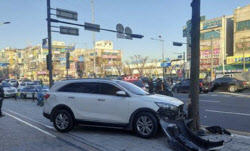|
바다에서 정처없이 떠도는 사람들을 맹독을 품은 화물 취급을 해선 안된다. 바다에서 위험에 처한 사람이 있으면 구해주는 것이 태곳적부터 내려오는 인간의 본능이다.
그런데 요즘은 으례히 조난당한 배에는 이주 노동자들이나 난민들이 타고 있을 것이라고 가정하면서 지나가던 배들은 이들을 지나치고 도움의 손길을 외면하곤 한다. 항구를 관할하는 당국은, 마치 위험한 쓰레기를 실은 배를 돌려보내듯이 그들을 다시 바다로 떠밀어 죽음까지는 아니어도 분명한 고초와 위험에 처하게 만든다.
지난달엔 근래 들어 가장 부끄럽게 느껴야할 일이 있었다. 리비아에서 지중해를 가로질러 이탈리아로 향하던 수십명의 이주 노동자들이 기아와 갈증으로 사망한 것이다. 보도에 따르면 몰타 당국은 선박을 배치해 음식과 음료수, 연료 및 구명 조끼를 지급했고 이탈리아 측에 경보를 전달했다. 수척해진 그들을 길을 계속 가도록 방치됐다. 그들 중 5명만 시련을 견뎌내고 이탈리아 해안경비대에 의해 구조됐다. 몰타 정부는 그들의 공무원들이 국제 조약에 따라 행동했다고 주장했지만, 이러한 행동은 애처롭게도 국제 인권 조약이나 해양 행동 규준에는 미치지 못한 것이었다.
북아프리카에서 이탈리아 사이의 바닷길에서는 분주하고 엄중하게 순찰이 진행되고 있는데도 난파선에 양식을 제공하기 위해 멈춘 배는 단 한척에 불과했다. 다른 해상 여행자들도 있었지만, 20일간 정처없이 방황하며 절망에 휩싸인 사람들이 타고 있던 12미터짜리 배에는 주목하지 않은 것 같다.
인권운동가들은 전율하며 항의의 목소리를 다시 높였다. 정부과 민간이 바다에서 위기에 처한 사람들을 구원하는 것은, 여행자의 지위나 여행의 목적에 상관없이 인간으로서 당연히 해야할 도리이자 국제해양법상의 의무라는 점을 상기시켰다.
인권법은 가장 중요하다. 무엇보다도 사람의 생명과 안전에 관한 권리는 높이 받들어져야 한다. 생계가 절박한 이들에게 필요한 음식, 물, 생필품 등이 제공되야 하며, 보호도 요구된다. 특히 해양법에 대한 유엔 협정과 바다에서의 생명구조관련 최개정안은 물론, 해상안전위원회와 국제해사기구의 이행지침 등은 바다에서 예상되거나 요구되는 행동에 대한 항목을 강화하고 있다.
국제적 의무를 무시하는 정부는 문제의 한 단면일 뿐이다. 무자비한 인신 매매범들이 매년 지중해 아덴만 카리브해 인도양 등지에서 일어나는 수만명의 죽음에 대해 많은 비난을 받고 있는 것은 주지의 사실이다.
난민들의 배가 해안을 떠돌고 있는 가운데 국기에 그려져 있는 국가(배가 속한 국가)들이 국제 기구에서 정한 안전 기준에 따라 실질적인 사법권을 발동하고, 자국 선박을 통제하는 것은 매우 중요하다. 또 이 국가들은 난민을 보호하고 인신 매매와 밀수를 금지해야 한다.
더 나아가 밀매나 통행에 연루된 혐의가 있는 배들을 수색할때는 배에 타고 있는 모든 사람들에 대해 지위고하를 막론하고 인간적이고 위엄있게 다뤄야한다. 정부나 지역 기관들이 이주 노동자나 난민을 가득 태운 배를 중간에서 붙잡거나 되돌리려고 하는 과정에서 그 배에 탄 사람들은 위험에 빠질수 있다.
이주 노동자들의 인권 보호가 실패한 가운데, 선장이나 해운회사들은 구제 의무나 인간적인 동정심에 기울기 보다는 `가난하고 쓸모없는` 이들을 구할 때 드는 금전적인 비용을 우선적으로 따지고 있다.
정부가 구조된 사람들을 가까운 항구나 최종 목적항에 상륙시키는 것을 거부할 때마다, 선장과 해운해사들은 위험에 처한 이주 노동자들을 외면하고 싶은 압박을 받는다. 정부가 이주 노동자들이 배에 타고 있다는 이유로 선박의 항구 진입이나 하역을 거부하면 회사들은 수백만 달러의 비용을 허비해야 하기 때문이다.
국제법이나 공통의 인간애 차원에서 의무를 수행하거나 생명을 구하는 것에 대해 칭찬해주는 대신, 위험에 처한 사람들을 도와준 어부가 범죄 혐의를 받는다면 이는 분명 의무 이행에 대한 의욕을 꺾는 것이다.
더 나은 삶을 찾기 위해 목숨과 안전을 무릎쓰고 국가간 경계선을 통과한 수백만명의 이주 노동자들은 오늘날 지구상에서 가장 심각한 인권 문제의 한 면을 보여준다. 국가는 바다에서 이들을 구할 수 있는 국제 규제나 행동 강령을 실행하겠다는 결심을 갖고 보다 신속하게 움직여야 한다. 도움이 필요한 사람들을 거부할 경우 책임을 물려야 한다.
(원문)
Migrants at sea are not toxic cargo
By Navi Pillay United Nations High Commissioner for Human Rights
Human beings adrift at sea are not toxic cargo. From time immemorial, human instinct was to save lives endangered at sea. Instead, today, on the assumption that boats in distress carry migrants and refugees, other ships pass them by, ignoring their pleas for help. Port authorities force them back to sea to certain hardship and peril if not death as though they were turning away ships laden with dangerous waste.
In that very busy and heavily patrolled stretch of water between northern Africa and Italy, only one vessel stopped to provide sustenance to the shipwrecked. Other seafarers did not seem to take notice of the 12-meter boat and its cargo of desperate human beings adrift for 20 days.
Human rights advocates have once again raised their voice in horror and protest, reminding governments and private concerns that the rescue of persons in distress at sea is not only an obligation under the international law of the sea, but also a humanitarian necessity, irrespective of the status of voyagers and the reasons for their voyage.
Human rights law is of paramount importance. First and foremost the right to life and security of persons must be upheld, for example, by providing food, water, and all the necessary care and protection to those who desperately need such sustenance to survive. Specifically, the United Nations Convention on the Law of the Sea and recent amendments to the Safety of Life at Sea, as well as the Search and Rescue Conventions and the implementing guidelines issued by the International Maritime Organization, anchor the rules of conduct expected and required at sea.
Government disregard of international duties represents only part of the problem. There is no doubt that ruthless people smugglers bear much of the blame for the thousands of deaths that occur each year in the Mediterranean, the Gulf of Aden, the Caribbean, the Indian Ocean and elsewhere. It is literally vital that flag States exercise effective jurisdiction and control over their vessels by ensuring strict compliance with safety standards set out in relevant international instruments so that unseaworthy ship and boats remain ashore. They must also prevent and prohibit smuggling and trafficking of migrants. Further, States inspecting vessels suspected of involvement in smuggling or trafficking must treat all persons on board humanely and in a dignified manner regardless of their status. Instead, overcrowded vessels and their passengers are sometimes endangered by the methods employed by governments and regional organizations to intercept and turn back boatloads of migrants and refugees.
There must be an unequivocal recognition that no persons, including asylum seekers and migrants, inhabit a human rights limbo while travelling or upon reaching a destination other than their country of origin.
A failure to protect migrants’ human rights encourages boat captains and shipping companies to put calculations of the financial cost of salvaging poor and unwanted seafarers in distress above both their duty to rescue and human compassion. Every time a government refuses to allow those who have been rescued to disembark at the nearest port or the final port of destination, they increase the pressure on captains and shipping companies to avert their gaze when they see a migrant boat in trouble. It can cost companies millions of dollars if states refuse to let their vessels enter ports or off-load cargoes because there are migrants on board. The disincentives for responsible behaviour became paradoxically clear when fishermen who helped seafarers in distress were made to face criminal charges, rather than praise for saving lives and fulfilling a duty clearly spelled out in international law and common humanity.
The millions of people who risk their lives and safety in order to cross international borders in search of a better life present one of the most serious human rights problems in our world today. States need to move faster and with more determination to give full effect to those international rules and standards of conduct that may save lives at sea. Above all, those who refuse help to seafarers in distress must be held accountable.








![[포토]메리크리스마스](https://image.edaily.co.kr/images/Photo/files/NP/S/2024/12/PS24122400797t.jpg)
![[포토]즐거운 눈썰매](https://image.edaily.co.kr/images/Photo/files/NP/S/2024/12/PS24122400779t.jpg)
![[포토]취약계층 금융 부담 완화, '인사말하는 이재연 원장'](https://image.edaily.co.kr/images/Photo/files/NP/S/2024/12/PS24122400633t.jpg)
![[포토]국민의힘 의원총회, '모두발언하는 권성동 원내대표'](https://image.edaily.co.kr/images/Photo/files/NP/S/2024/12/PS24122400506t.jpg)
![[포토]윤석열 대통령 탄핵심판 첫 변론 준비기일 27일 예정대로 진행](https://image.edaily.co.kr/images/Photo/files/NP/S/2024/12/PS24122400433t.jpg)
![[포토]'더불어민주당 원내대책회의'](https://image.edaily.co.kr/images/Photo/files/NP/S/2024/12/PS24122400387t.jpg)
![[포토]국무회의 입장하는 한덕수 권한대행](https://image.edaily.co.kr/images/Photo/files/NP/S/2024/12/PS24122400378t.jpg)
![[포토]은행권 소상공인 금융지원 간담회](https://image.edaily.co.kr/images/Photo/files/NP/S/2024/12/PS24122300609t.jpg)
![[포토]인사청문회 출석한 마은혁 헌법재판관 후보자](https://image.edaily.co.kr/images/Photo/files/NP/S/2024/12/PS24122300404t.jpg)
![[포토]아침 영하 10도, 꽁꽁 얼어붙은 도심](https://image.edaily.co.kr/images/Photo/files/NP/S/2024/12/PS24122300843t.jpg)




